You’ve undoubtedly noticed. The past few weeks have been marked by constant movement between streaming platforms. From Spotify to Apple Music, YouTube Music, Amazon Music, and TIDAL, all have seen their user numbers fluctuate. One of them, a bit lesser-known, has also attracted its share of users: Qobuz. And we wanted to reveal a little more! What is Qobuz, and what are its specificities?

What is Qobuz, and what are its specificities? A bit of history.
A few months ago, we published a detailed article on the history of Qobuz. It provides more information about the origins of this French streaming platform. It was launched in 2007, in a version significantly different from the one we know today. Eight years later after its launch, it was acquired by Xandrie, focusing on audio quality to differentiate itself from its competitors. A strategy that remains firmly anchored in Qobuz’s DNA.
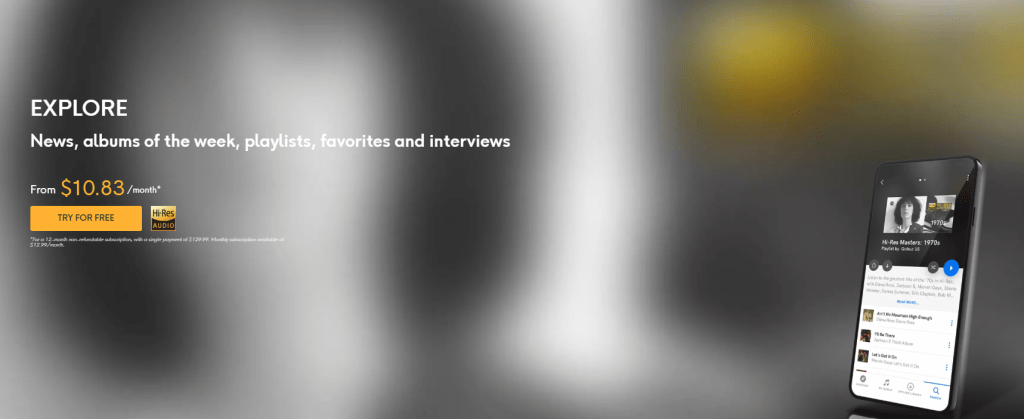
Fundraising in 2019 and 2020 helped finance Qobuz’s international expansion. Now well-established in the music streaming landscape, Qobuz continues to grow and add new features to an already solid offering, establishing itself as a widely credible choice for anyone looking to switch to a new music streaming service. With a more human approach than its competitors, and where algorithms do not dominate all features, Qobuz is attracting a growing number of users.
What is Qobuz, and what are its specificities? Audio quality and artists’ remuneration.
One of Qobuz’s main attractions, and the reason why a growing number of users are choosing the platform, is the high quality of its audio offerings and the compensation it provides to artists.
Qobuz, along with TIDAL, is the streaming platform audiophiles turn to when they want to stream music. The most basic format offered by Qobuz is MP3 (320Kbps). HD options are divided into two formats: the “CD Quality” format (16-bit / 44.1kHz) and the “Hi-Res Audio” format (24-bit / up to 192kHz).
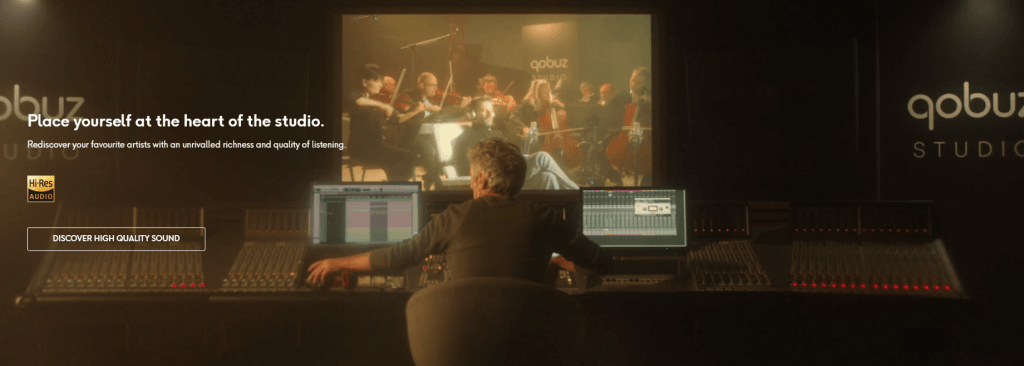
You guessed it: CD quality is equivalent to what you’d find if you slipped a CD into a player. It’s achieved using a high-end compression tool called FLAC, which ensures no loss of quality. The Hi-Res Audio format approaches that of a recording studio. Audio files are encoded in 24-bit rather than 16-bit to achieve optimum sound levels. It’s hard to find better audio quality on the market today.
Pay per stream
In 2024, the media outlet Lalal.ai published a study stating that Qobuz is the platform that best remunerates artists. Ahead of Napster, TIDAL, Deezer, Apple Music, and then Spotify. This isn’t entirely surprising. Qobuz has always emphasized its commitment to a more equitable distribution of the money generated by music streaming. This is a key component in a context where many voices have been raised in recent years to protest the erosion of artistic revenues due to the dominance of streaming.
In 2025, Qobuz took a further step. It became the first music streaming platform to publish, in black and white, the amounts it pays to rights holders per stream. In a blog post that caused a stir, they write:
“For the 2023-2024 fiscal year, Qobuz will distribute US$0.01873 per stream in royalties to labels and publishers […] In terms of average revenue per user (ARPU)—which measures how much a platform generates on average per user over a given period—Qobuz generated an average revenue of US$121.13 per year, where the market average is US$22.38 per year.”
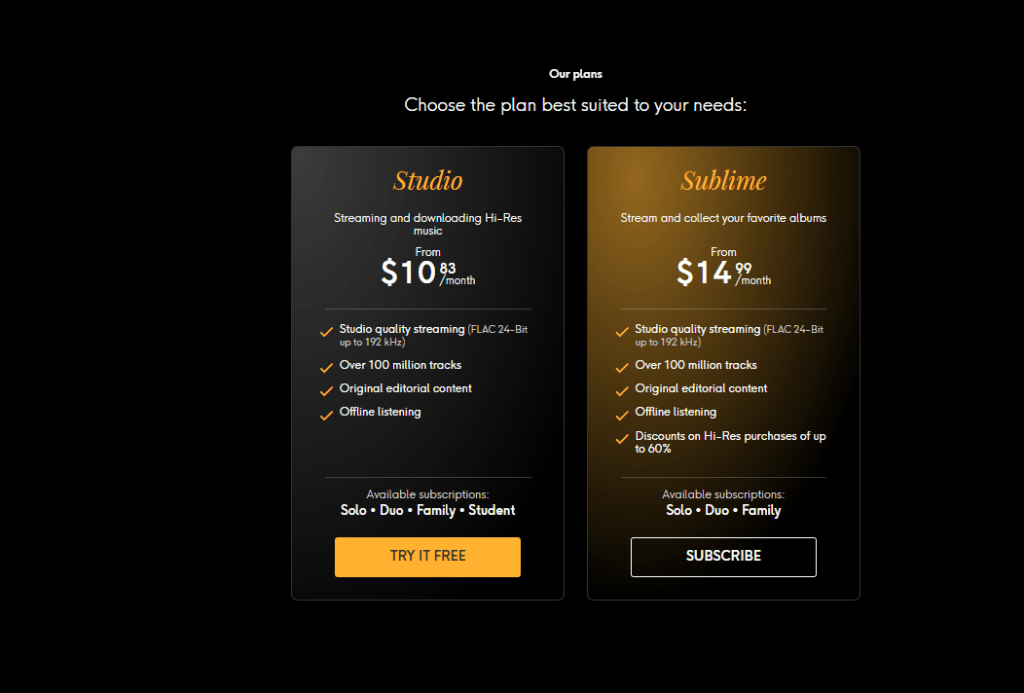
An important fact: Qobuz is continuing its international expansion, with availability in Portugal and Latin America since last May. Brazil, Mexico, Argentina, Chile, and Colombia can now take advantage of Qobuz. In total, the platform now covers nearly thirty countries, more than enough to satisfy a large number of users.
In October 2024, Qobuz launched in Japan, the world’s second-largest music market. This expansion is logical, following the success of its establishment in the United States and a shift in scope internationally, where Qobuz now generates the majority of its revenue.
What is Qobuz, and what are its specificities? A unique perspective on music.
Qobuz stands out from its competitors by adopting an almost anachronistic, yet not meaningless, approach in an increasingly digitalized world. Through its magazine section and its numerous articles, panoramas, and interviews, the Qobuz editorial team gives music a written voice and extends the listening experience.
In a context where the music press is becoming increasingly fragile, Qobuz’s approach is almost life-saving. It gives journalists, experts, and critics a platform at a time when they have less and less space to express themselves. For listeners, it’s an opportunity to learn more about the artistic creation process. And understand the intricacies of a particular album, or compare their listening experience with the artist’s reality.
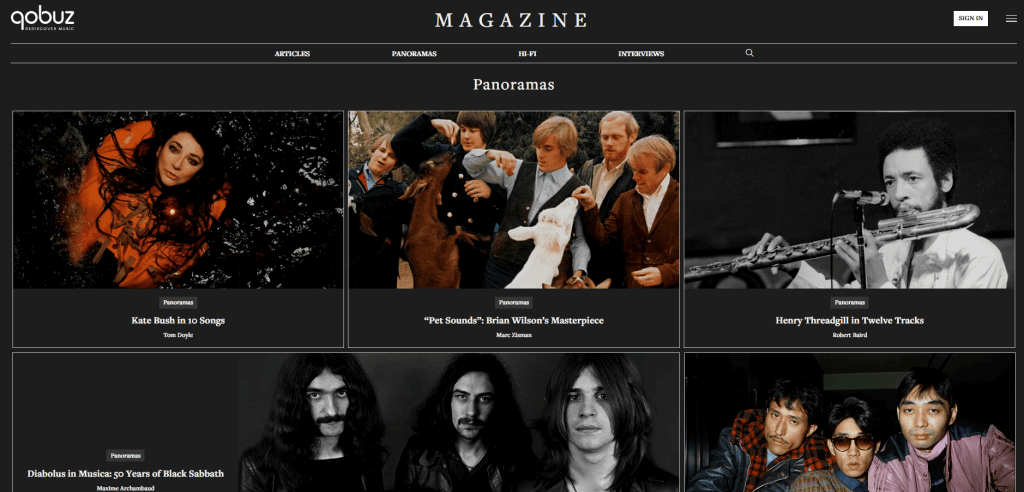
For artists, in a context where the profusion of communication media and shrinking attention spans gives them less space to express themselves at length, Qobuz offers a platform where they have the freedom to develop their ideas. All of this creates a synergy between audio and words. It takes us back a few decades to a time when streaming did not yet exist, when vinyls were the primary means of purchasing music. And when music magazines still played a crucial role as critics and recommendation tools.
By following this approach and remembering that content is now predominantly consumed online, Qobuz creates a virtuous environment where artists and enthusiasts can come together and symbolically break down barriers.
What is Qobuz, and what are its specificities? Recommendation system
As with its magazine section, Qobuz is going against the grain with its recommendation system. We’ve known for many years that algorithms now dictate everything. They determine the choice of a streaming platform for a lot of users, have enabled the emergence of playlists as the primary listening mode, and have the ability to make or break careers.
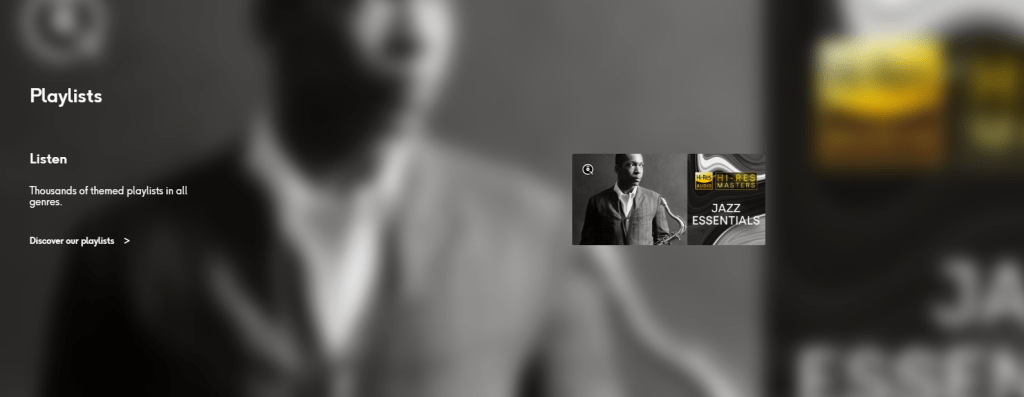
By investing millions in its artificial intelligence tools to ensure its recommendations are as precise as possible, Spotify has gained a solid competitive advantage, which its competitors are now trying to regain.
Hand-picked!
None of that at Qobuz. Or to be more precise: not “only that”. Recommendations at Qobuz are based on musical recommendations hand-selected by a team of experts. It’s as if you were strolling down the aisles of a record store and asking a salesperson for advice.
The playlists are handcrafted, almost artisanally, highlighting essential albums without any artificial intervention. While most platforms create playlists based on listening history, Qobuz favors a less personalized, but more human, approach.
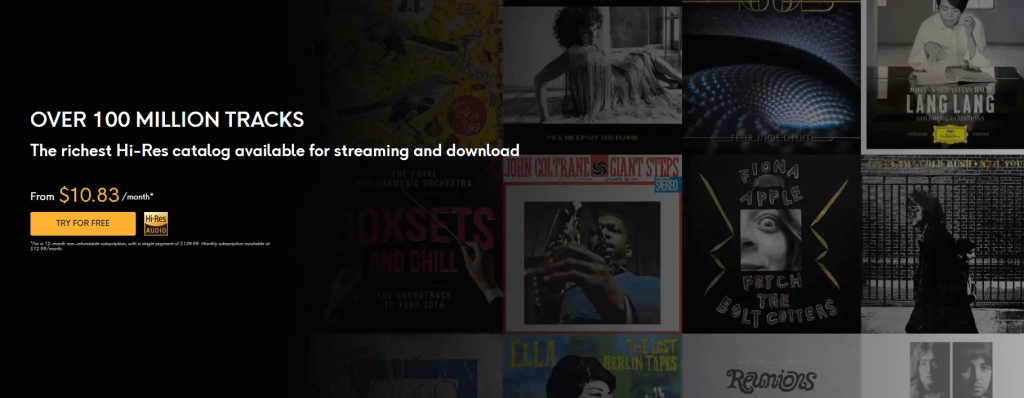
But that doesn’t mean Qobuz is forgetting new uses. The “For You” section offers personalized mixes, radio stations tailored to your preferences, and recommendations related to artists you’ve recently listened to. This section was unveiled in mid-September 2025 and is brand new.
It’s part of a comprehensive overhaul of Qobuz’s “Discover” tab, which is more modern and filled with mixes and discoveries, while remaining true to the platform’s DNA and its desire to return to a less digitalized approach to music.
How can you transfer your playlists and data to Qobuz?
You’ve read our article and are now determined to test what Qobuz has to offer. But how do you transfer all your data to Qobuz without losing it?
One of the primary concerns that could prevent you from switching to a new music streaming platform is losing your entire music collection. It includes your playlists, favorite albums or tracks, and followed artists. Rebuilding this library with a new service could be time-consuming and even impossible, depending on the size of your collection.
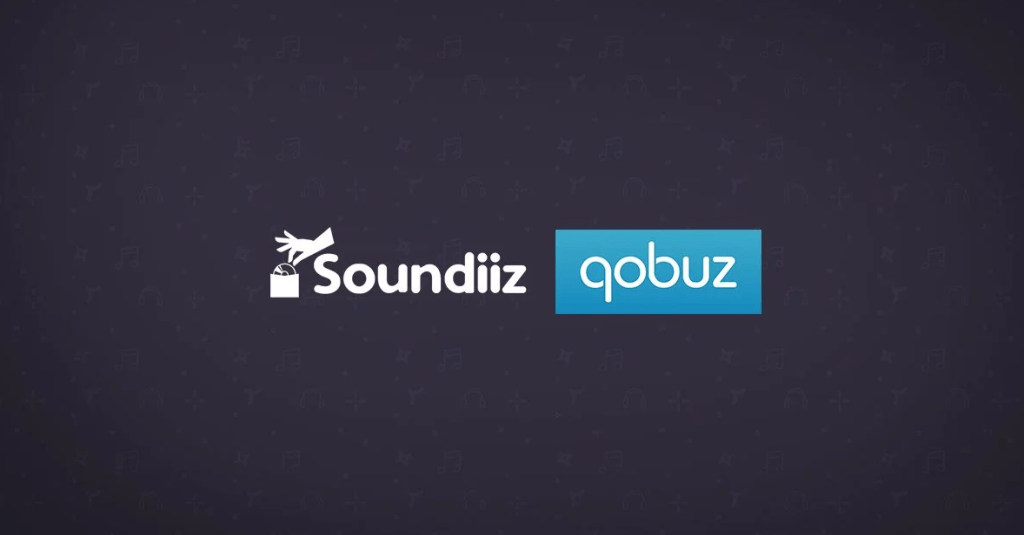
Soundiiz solves this by utilizing an advanced matching process, enabling you to transfer your music quickly and effortlessly from Deezer, Apple Music, Spotify, or any other platform to Qobuz.
Simply follow the transfer procedure, which we explain in detail right here. Don’t panic: it’s straightforward and will only take a few minutes.
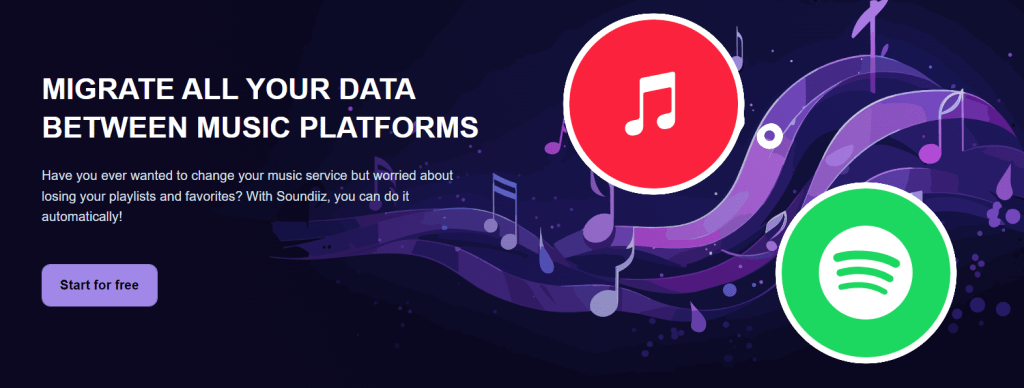
Beyond the Transfer function, Soundiiz also allows you to save and download your playlists in the format you want. This is a way to find everything in one place and avoid the catastrophic situation of losing all the data you’ve spent so many years accumulating.
To test everything Soundiiz has to offer, click here and follow the instructions!



